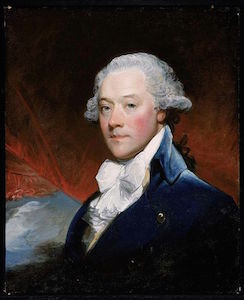Who paid off the Revolutionary War’s $2,024,899 US national debt?
 July 9, 1795 — Today, financier James Swan paid off the $2,024,899 US national debt that had been accrued during the American Revolution.
July 9, 1795 — Today, financier James Swan paid off the $2,024,899 US national debt that had been accrued during the American Revolution.
During the war, a cash-strapped Continental Congress accepted loans from France. Paying off these and other debts proved to be one of the major challenges of the post-independence period. The new U.S. Government attempted to do so in a timely manner, and the debts were at times a source of diplomatic tension.
Swan came to the financial rescue. He privately assumed the entire debt owed to the French, then resold these debts at a profit on domestic US markets.
While the US no longer owed money to foreign governments, it continued to owe money to private investors both domestically and in Europe. But Swan’s payoff allowed the young country to place itself on a more sound financial footing.
Who was James Swan? Born in Fifeshire, Scotland, in 1754, Swan moved to Boston in 1765 and made a small fortune after apprenticing at a mercantile house. He then opened his own firm, Swan & Schweizer, in Philadelphia. A proponent of American independence, he participated in the Boston Tea Party, and was twice wounded at the Battle of Bunker Hill.
Like many businessmen of the day, Swan’s fortunes rose high and fell quite low. As a consequence, he spent about 22 years in debtors prison in Paris, where reportedly he died in 1830.
Sources
Words of Wisdom
Rather go to bed with out dinner than to rise in debt.




